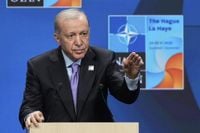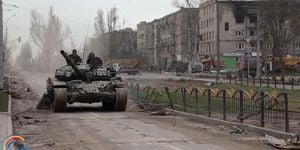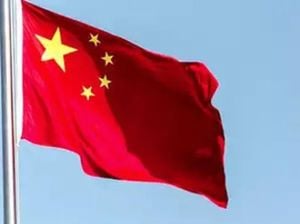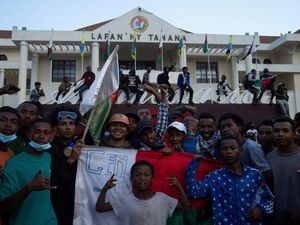Turkey’s political scene was thrown into fresh uncertainty this week after an Ankara court delayed a much-anticipated verdict on the legitimacy of the Republican People’s Party’s (CHP) 2023 leadership election. The decision, handed down on September 15, 2025, has rippled far beyond party lines, stirring financial markets, igniting protests, and raising pointed questions about the future of democracy in the country.
The case centers on allegations of electoral fraud during the CHP’s 38th congress, which saw long-time party leader Kemal Kilicdaroglu ousted in favor of Ozgur Ozel. Plaintiffs claim the internal vote was marred by procedural violations and even vote buying—a charge the CHP flatly denies. Instead, party officials and critics argue the lawsuit is a thinly veiled attempt by President Recep Tayyip Erdogan’s government to destabilize the main opposition through judicial pressure rather than the ballot box.
According to Reuters, the court’s adjournment to October 24 provided a brief sigh of relief for traders and party loyalists alike. Turkey’s main Istanbul stock index surged 5.4%, the banking sub-index leapt 6.19%, and the lira—battered by a string of losses—looked set to end a six-day slide. Government bonds also rallied, with the 2043 maturity climbing to just under 74 cents on the dollar and the cost of insuring against Turkish default dropping to its lowest since March.
But the market’s optimism may be short-lived. As Erik Meyersson, Chief Emerging Markets Strategist at SEB, told Reuters, “The recent gains in Turkish bonds and stocks, as well as the strengthening of the lira, are unlikely to be sustainable given that the Ankara court has only delayed its ruling. Foreign exchange movements have been relatively modest, and the underlying risks remain. This is not a victory for the opposition.”
At the heart of the legal battle is the fate of Ozgur Ozel, the combative, gravel-voiced chair who has risen in prominence since the dramatic 2023 congress. If the court ultimately annuls the congress, Ozel could be stripped of his title. The court might also appoint trustees to oversee the party or reinstate Kilicdaroglu—a move that would likely deepen the party’s internal divisions. Kilicdaroglu, despite signaling his willingness to return, remains deeply unpopular among many CHP supporters after a string of defeats to Erdogan.
The stakes are high, not just for the CHP but for the broader trajectory of Turkish democracy. As AP reported, the case is widely seen as a test of the country’s balance between democracy and autocracy. Critics contend that Erdogan’s government is leveraging the judiciary to weaken the opposition ahead of national elections scheduled for 2028, which could be called earlier. The CHP, meanwhile, has described the legal action as a “judicial coup.” During a rally in Ankara on September 14, Ozel thundered to supporters, “We will resist all moves to undermine Turkey’s oldest political party.”
The government, for its part, maintains that Turkey’s courts are impartial and free from political interference. Officials insist that investigations into the party are solely focused on rooting out corruption, not stifling dissent. Yet the timing and scope of the crackdown have fueled suspicions at home and abroad. Human rights groups and some European leaders have echoed the opposition’s charges, warning of a slide toward autocracy as courts, the military, and other once-independent institutions appear to bend to Erdogan’s will.
Recent months have seen a wave of arrests targeting municipalities controlled by the CHP. Among those detained is Istanbul Mayor Ekrem Imamoglu, widely regarded as Erdogan’s most formidable political rival. Imamoglu has been held in pre-trial custody since March on corruption charges he denies. His arrest ignited widespread protests and sent shockwaves through Turkish financial markets. The central bank even briefly reversed a cycle of interest rate cuts in an attempt to calm the turmoil, as noted by Reuters.
Earlier this month, the crisis deepened when a court removed the CHP’s elected provincial leadership in Istanbul and appointed an interim chairman to oversee the local branch. Police escorted the court-appointed official to party headquarters, using pepper spray to disperse party members and supporters who resisted his arrival. The image of police clashing with opposition activists in the streets of Turkey’s largest city underscored the gravity of the moment.
Despite the mounting pressure, the CHP has held firm in its denial of any wrongdoing. A party lawyer argued in court on September 15 that only Turkey’s Supreme Election Board has jurisdiction over party congress elections—a point that could yet become pivotal as the legal wrangling continues.
The political stakes are matched by economic anxieties. Turkish assets have been on a rollercoaster ride, with markets crashing in March when Imamoglu was jailed. Although the recent court delay brought a measure of stability, analysts warn that the underlying political risks remain. Ipek Ozkardeskaya of Swissquote summed up the mood in the markets: “Uncertainties have merely been extended. The worst-case scenario has been avoided, yet foreign investors’ perception of Turkey’s policy environment and investment outlook remains unchanged.”
Meanwhile, the CHP remains level with Erdogan’s AK Party in opinion polls, a remarkable feat given the intense pressure facing the opposition. The party’s strong showing in the 2024 local elections—where it swept most major cities in the biggest defeat yet for Erdogan’s AKP—demonstrated that, for now, Turkey’s democracy retains a measure of vibrancy.
Still, the specter of further judicial interventions looms large. If the court annuls the congress, the fallout could be dramatic: the appointment of trustees, the return of an unpopular former leader, or even the further fragmentation of the opposition. Alternatively, the court could dismiss the case entirely, which was originally brought by a disgruntled CHP member rather than a government official.
As the October 24 hearing approaches, all eyes will be on Ankara. The outcome could determine not just the leadership of Turkey’s oldest political party, but the health of its democratic institutions and the direction of the country for years to come. For now, uncertainty reigns, and Turkey’s opposition—and its markets—are bracing for whatever comes next.




